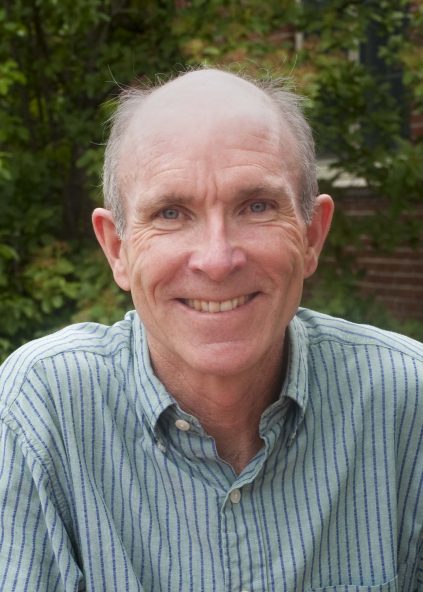David Hart
Research Interests
- Mobilizing Higher Education’s Capacity for Problem-Solving
- Community – University Partnerships
- Transdisciplinary Research
- Solutions-Driven Sustainability Science
Degrees
- University of California, Davis, Ph.D. (Ecology)
- University of California, Santa Cruz, B.A. (Biology)
Profile
Ever since he became embroiled at the age of 17 in a controversial proposal regarding the environmental and economic future of a coastal California watershed, David Hart has been searching for ways to increase the value of science in society. Along the way, he has conducted a wide range of environmental research; served as a science advisor to government, the private sector, and NGOs; and developed innovative programs to address pressing challenges at the intersection of environmental, social, and economic issues (i.e. sustainability challenges).
For more than 15 years, David and his colleagues have been growing the capacity of universities to conduct stakeholder-engaged, interdisciplinary research, which led to the creation of the Senator George J. Mitchell Center for Sustainability Solutions. More than 200 faculty and 800 students from 17 universities representing the natural and social sciences, engineering, design, and the humanities have participated in this solutions-driven research (e.g. 60+ projects focused on water resources, forestry, agriculture, coastal fisheries, climate change, municipal planning, renewable energy, materials management, community and economic development). Research support has come from many sources, including more than $32 million in grants from the National Science Foundation.
Selected Publications
Hart, D.D., McGreavy, B., Sutton, A., Hillyer, G.V., & Ranco, D.J. (Fall, 2022). Collaboration on the mudflats: How community – university partnerships can strengthen deliberative and democratic practices. Issues in Science and Technology 39: 71-76.
McGreavy, B., Ranco, D., Daigle, J., Greenlaw, S., Altvater, N., Quiring, T., Michelle, N., Paul, J., Binette, M., Benson, B., Sutton, T. & Hart, D.D. (2021). Science in Indigenous homelands: Addressing power and justice in sustainability science from/with/in the Penobscot River. Sustainability Science, 16(3), 937-947.
Roy, S. G., de Souza, S. P., McGreavy, B., Druschke, C. G., Hart, D. D., & Gardner, K. (2020). Evaluating core competencies and learning outcomes for training the next generation of sustainability researchers. Sustainability Science, 15(2), 619-631.
Hart, David D., and Linda Silka. (Spring 2020). Rebuilding the Ivory Tower: A Bottom-Up Experiment in Aligning Research with Societal Needs. Issues in Science and Technology 36, no. 3: 64–70.
Gordon, I.J., Bawa, K., Bammer, G., Boone, C., Dunne, J., Hart, D., Hellmann, J., New, M.G., Ometto, J.P., Wendorf, G., Agrawal, A., Bertsch, P., Campbell, C.D., Dodd, P., Janetos, A., Mallee, H., Taylor, K., Pickett, S. (2019). Forging future organizational leaders for sustainability science. Nature Sustainability, 2(8), pp. 647-649.
Bieluch, K.H., McGreavy, B., Silka, L., Strong, A. and Hart, D. (2019). Empowering Sustainability Leaders: Variations on a Learning-by-doing Theme. In Developing Change Agents: Innovative Practices for Sustainability Leadership, Kremers, K, Liepins, A, & York, A. (eds), University of Minnesota Libraries. EBook: https://open.lib.umn.edu/changeagents/
Roy, S. G., Uchida, E., de Souza, S. P., Blachly, B., Fox, E., Gardner, K., Gold, A., Jansujwicz, J., Klein, S., McGreavy, B., Mo, W., Smith, S., Vogler, E., Wilson, K., Zydlewski, J., & Hart, D. (2018). A multiscale approach to balance trade-offs among dam infrastructure, river restoration, and cost. Proceedings of the National Academy of Sciences, 115(47), 12069-12074.
Hart, D., 2018. Teamwork Is the New Leadership. Maine Policy Review, 27(1), pp.30-33.
Bednarek, A.T., Wyborn, C., Cvitanovic, C., Meyer, R., Colvin, R.M., Addison, P.F.E., Close, S.L., Curran, K., Farooque, M., Goldman, E., Hart, D., Mannix, H., McGreavy, B., Parris, A., Posner, S., Robinson, C., Ryan, M., Leith, P. (2018). Boundary spanning at the science–policy interface: The practitioners’ perspectives. Sustainability Science, 13(4), pp.1175-1183.

